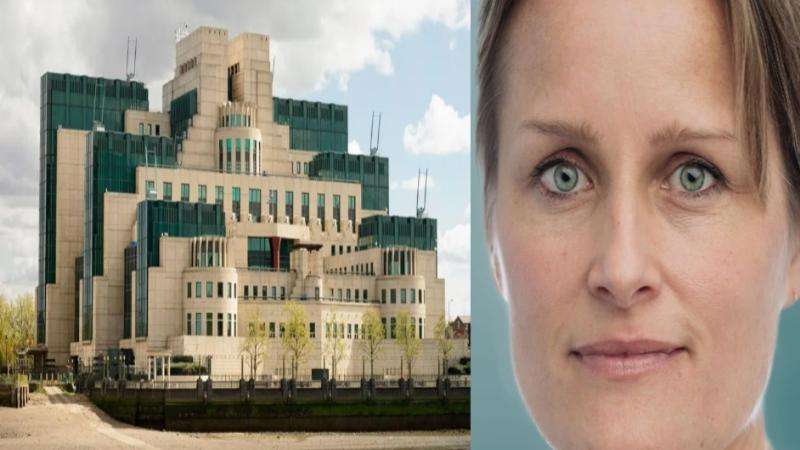For generations, Britain has represented opportunity and sanctuary for the world's affluent, including a significant proportion of its immigrant communities. From those fleeing political turmoil to entrepreneurs seeking fertile ground for investment, the UK's "non-dom" tax status offered a unique attraction, allowing wealthy individuals to reside in Britain without paying UK tax on their overseas earnings. However, a dramatic policy shift by the Labour government, abolishing this status and reforming inheritance tax, is now forcing a stark choice upon these high-net-worth immigrants: pay substantially more, or leave.
The changes, which came into effect on April 6, 2025, have already prompted a noticeable wave of departures among the super-rich, many of whom are foreign-born individuals who had made Britain their home. While the full extent of this exodus won't be clear for months, the personal stories emerging paint a vivid picture of a once-welcoming nation now perceived as unwelcoming to their wealth.
From Sanctuary to Scrutiny: The Immigrant Experience Under New Tax Rules
"I’m still here, counting the days I’m allowed to stay, waiting for a miracle, which is not going to happen," laments Magda Wierzycka, a 55-year-old South African millionaire. Wierzycka, who fled communism in Poland before building her fortune in South Africa, moved to the UK in 2019, bringing approximately £500m to invest in British innovation. Her experience as a non-dom, now abolished, means she is limited to just 91 days in Britain annually before her global earnings and gains become taxable. "Five years in, I effectively get told ‘We don’t need your money, and we don’t want you in the country’," she states, expressing her reluctant plans to return to South Africa.
This sentiment is echoed by others. Bassim Haidar, an entrepreneur born in Nigeria with Lebanese citizenship, had already pre-emptively left Britain before the April 6 changes, now dividing his time between the UAE, Greece, and Italy. His decision underscores the mobility of this demographic. "Just like we adapted here, we will adapt somewhere else," he remarked, revealing that his UK staff has shrunk from 16 to two, a direct consequence of his relocation.
Chancellor Rachel Reeves' decision to target this wealthy immigrant demographic was a calculated risk, projecting a £5bn annual boost to public finances. The underlying assumption was that these individuals would simply absorb the higher tax burden rather than leave. However, for many, the new regime, particularly the inheritance tax reforms that can subject worldwide assets to UK tax even years after leaving, has become a "tipping point." One non-dom described it as "boiling a frog, except in this case the frog can jump out of the water."
The Hidden Cost: Beyond Direct Tax Revenue
The true scale of how many wealthy immigrants are leaving remains largely unknown, as tax data will not be available for up to 18 months. However, the Centre for Economics and Business Research (CEBR) forecasts a grim scenario: if just 25% of non-doms depart, the Treasury would gain no extra money. Should a third leave, the UK could face a £700m loss in the first year alone, potentially escalating to a staggering £12.2bn annual shortfall if half relocate.
The ripple effect extends to the very fabric of London's high-end economy, disproportionately impacting businesses and services that catered to this affluent immigrant community. Private members' clubs in the City are reporting membership cancellations, with managing director Philip Palumbo noting, "The City seems to lack confidence, purpose. It feels over-taxed, over-regulated, and we are haemorrhaging good people to artificial places like Dubai."
Luxury tailors on Savile Row, like Richard Anderson, are seeing fewer customers from Arab countries. The demand for high-end household staff, such as butlers and nannies, is also in decline in London, with employment agencies seeing demand shift to more tax-friendly locales in the Middle East, Monaco, and America. Even London's most exclusive property markets are experiencing "financial crisis-level discounts," with prices in prime central London a fifth lower than their 2014 peak, directly attributed to these tax changes and stamp duty hikes.
Interior designer Phillippa Thorp, whose business thrived on the patronage of wealthy foreign clients, laments the departure of several non-dom customers. "Businesses like ours have survived on rich bankers and rich people coming here from all over the world. They’ve had their families here for 20 years, they would never have left but for this mad own-goal," she states, expressing fears for the skilled tradespeople she employs. "We’re losing them and we’re losing their skills, and they will never come back. It’s desperate, the situation."
A Global Race for Wealth: Who Benefits from Britain's Loss?
The beneficiaries of Britain's stricter tax regime are destinations actively courting global wealth. Countries like the UAE are rolling out the red carpet, offering rapid company formation and bank account setup. Dubai, for instance, saw Britons become its second-biggest foreign property buyers last year. Philippe Amarante of Henley & Partners Middle East notes that parents who once chose Britain for their children's schooling are now looking to Dubai, citing concerns over "knife crime" and "fist fights in the school courtyards" in the UK as contributing factors.
This "wealth drain" has become a heated political issue. Critics from opposition parties, such as Shadow Business Secretary Andrew Griffith and Reform Party Deputy Leader Richard Tice, are sounding alarms about a "brain drain and wealth drain," urging a reversal of the tax provisions. Reform has even pledged to scrap inheritance tax entirely and reverse the non-dom changes, arguing that "There won’t be any wealth left in the country."
While some, like "patriotic millionaire" Stephen Kinsella, dismiss the exodus claims as fabricated, arguing that many wealthy individuals with deep roots in the UK will remain, the anecdotal evidence from businesses and individuals directly affected suggests a tangible shift. The core question for Britain remains: as it seeks to address public finances, is it inadvertently undermining its centuries-old appeal to the very individuals who have historically contributed significantly to its economy, directly and indirectly, through investment, job creation, and patronage of its luxury sectors? The answer will likely dictate the future economic landscape for years to come.

_2.jpg)
_1.jpg)





.svg)



